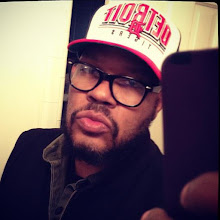
Peter Saville is a rock star. One of the co-founders of the famed Manchester, UK, record label Factory, his stark, often re-contextualized images have become iconic. From Joy Division’s seismic logo to the notorious “floppy disc” design for New Order’s “Blue Monday” 12-inch single, Saville’s visual work for Factory challenged convention and reinvented how the world looked at record covers.
Now the creative director for his home city of Manchester, Saville received a hero’s welcome when he spoke to a packed Paley Center for Media audience in Beverly Hills on “Use Hearing Protection,” in a Q&A format moderated by Christopher Mount, an art professor and former editor-in-chief of i-D Magazine.
Dressed in a white suit (“I can only wear this in L.A.,” he deadpanned), Saville thoughtfully touched on a wide range of topics while images of his many pieces flashed behind him (his cover for Pulp’s “This Is Hardcore” even elicited a squeal from the crowd). He said Factory owed its success to the fact that no one in the loosely defined “company” knew what they were doing. Attributing the enduring power of Joy Division to the band’s democratic approach as opposed to being a vehicle for Ian Curtis, he said it was Curtis’ death that allowed Factory to become such a cultural force.
“When Ian died, we suddenly sold more records than we could keep up with,” he remembered, adding that they sunk a majority of the profits into their famous club Hacienda in Manchester, a practice that would continue with New Order.
Touching on his panoramic post-Factory work, he told amusing tales about working with George Michael and Stella McCartney ("I'd worked with her dad, so I never felt obliged to take her seriously"), getting particularly scathing when discussing the fashion industry, which he finds “useless.” He garnered laughs when deconstructing what he called “the current culture of handbags, which is fashion moving off of the body.”
Particularly animated about his new role as the creative director of Manchester (which sponsored the event), Saville talked about the challenges of re-envisioning his city to be perceived as more than just a football town, in reference to the world renowned Manchester United squad. “We were the first modern city at the start of the Industrial Revolution,” he challenged while explaining the current “Original Modern” campaign.
Afterward, Saville mingled easily during the reception, posing for pictures and signing autographs for fans while Tim Burgess of the Charlatans spun actual vinyl records, including New Order’s “Blue Monday,” of course.
(originally published by the L.A. Times).

0 comments:
Post a Comment